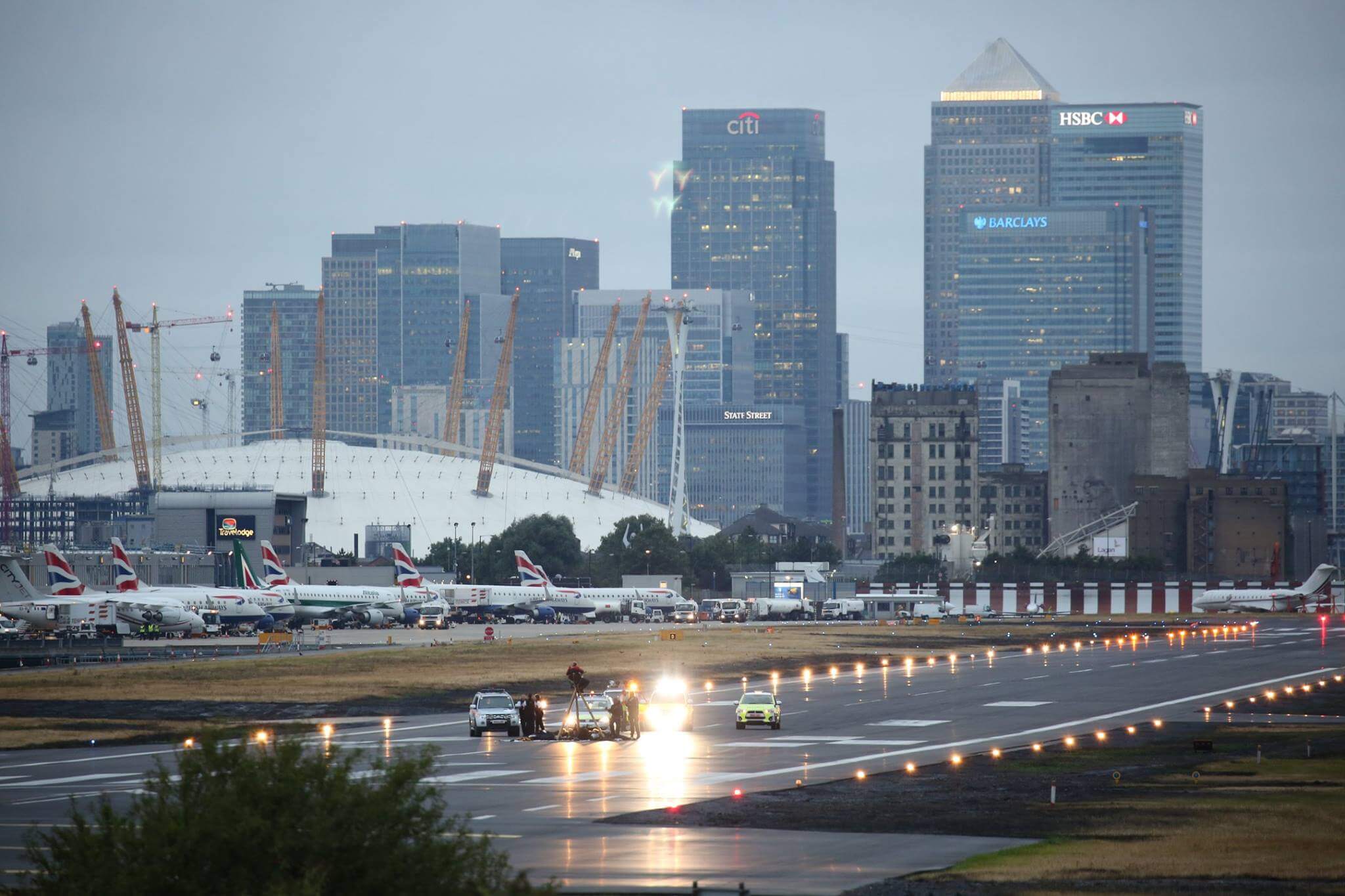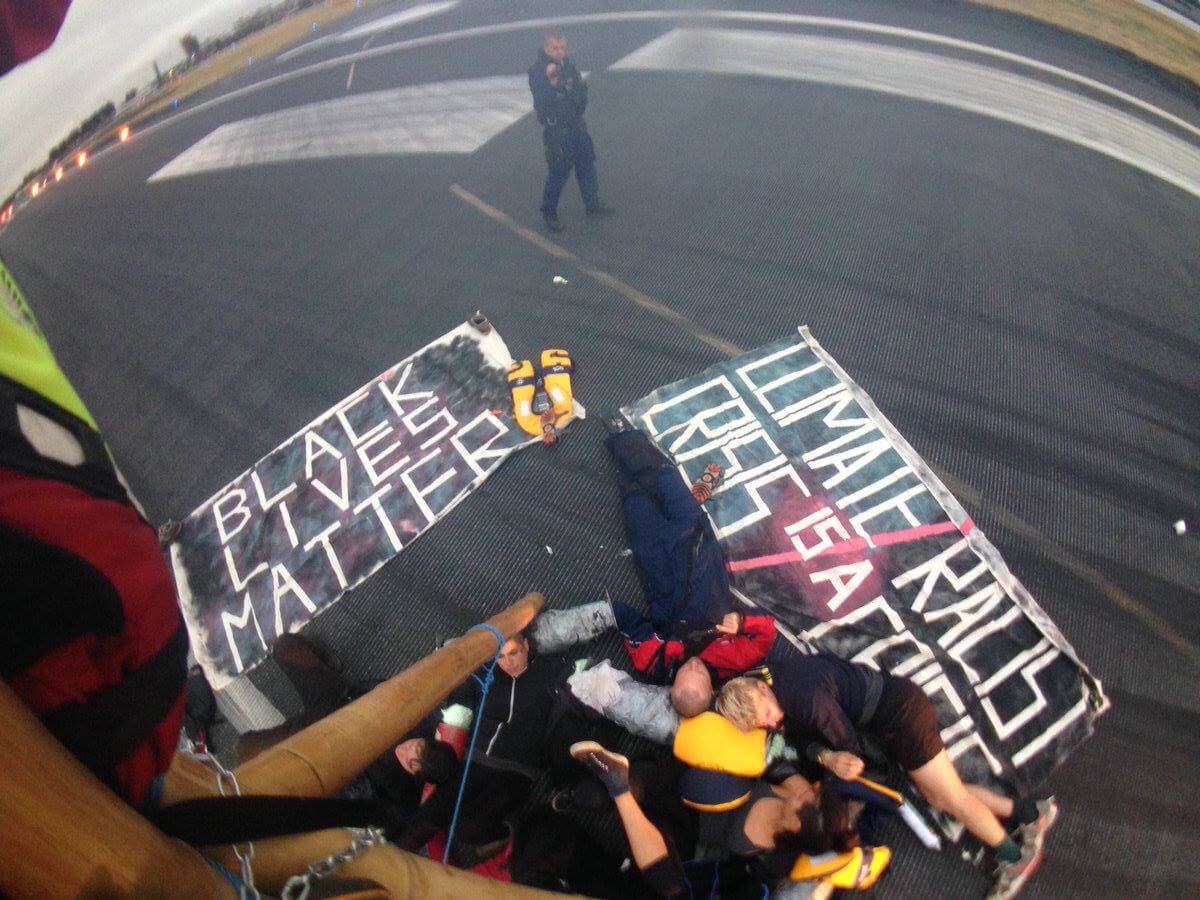 Tuesday’s news was dominated by Black Lives Matter’s audacious action to shut down City Airport and to force the issue of racism into the media discourse on climate change and environment.
Tuesday’s news was dominated by Black Lives Matter’s audacious action to shut down City Airport and to force the issue of racism into the media discourse on climate change and environment.
You would think that reportedly swimming or paddling their way across a dock to reach the runway was no mean feat but their success in re-framing coverage of the issue of airport expansion as a racist, climate crisis was just as impressive.
Media coverage of the debate around airport expansion rarely even mentions climate change, despite the fact that there is no realistic way to expand airports and meet our commitments on climate change. Similarly, media discourse on climate change rarely mentions race. Despite good intentions, NGOs and the environment movement have often exacerbated this by: framing environmental issues in terms of consumers’ rights instead of justice, ignoring systemic issues such as political economy, neo-colonialism and racism, and not allowing those most affected (mostly non-white, poor communities) to lead.
Racism in Britain still very much alive and well. The systematic, structural oppression of communities based on their colour has not been addressed even though open prejudice may have declined. Take for example the staggering wealth and health gaps and the fact that more black people are jailed in England and Wales proportionally than in US. Environmental hazards are no different. Black British Africans are 28% more likely than their white counterparts to be exposed to air pollution.
Alexandra Wanjiku Kelbert from BLM explains why the climate crisis is a racist crisis:
“On the one hand Britain is the biggest contributor per capita to global temperature change. It is also one of the least vulnerable to the effects of climate change. On the other hand, seven of the 10 countries most vulnerable to climate change are in sub-Saharan Africa.
We’re not saying that climate change affects only black people. However, it is communities in the global south that bear the brunt of the consequences of climate change, whether physical – floods, desertification, increased water scarcity and tornadoes – or political: conflict and racist borders. While a tiny elite can fly to and from London City airport, sometimes as a daily commute, this year alone 3,176 migrants have died or gone missing in the Mediterranean, trying to reach safety on the shores of Europe.”
I have seen this through my work with oil-affected communities and social movements in Nigeria. There, Shell a powerful multinational company continues a colonial tradition, in which fossil fuels are extracted and shipped to North America and Europe, destroying community health and livelihoods. Profits are shared between European corporations and a subservient Nigerian elite that use military force to protect the status quo.
Some commentators have questioned why white activists were part of the action. Given that the group itself was formed in response to the systematic and intentional targeting and killing of black people by the police, the institutional racism of the police and criminal justice system and the recent harsh treatment of Black Lives Matters activists apparently on race grounds it seems self evident why it would be welcome to have white allies putting their bodies on the line. The group confirmed that Black Lives Matter UK is and “has always been black-led. “
Popular protest and campaigning by a loose coalition of local residents, activists and NGOs foiled the industry’s plans to begin airport expansion by building a third runway at Heathrow in 2010. I was involved, even occupying a plane at Heathrow. Back then I remember worrying about how white the climate movement was. Despite being mixed race, I grew up in a white household in the countryside. I was able to pass as white. I had a university education. I hadn’t really come up against systemic or institutional racism and I was less engaged in those struggles. Now I have more understanding of the importance of showing solidarity with and listening to those resisting racism and oppression.
Airport expansion is back on the agenda. Stopping airport expansion alone won’t solve climate change, just as stopping the worst effects of climate change won’t necessarily bring justice. But the actions we take should bring us closer to justice and the ways in which we organize should demonstrate our values. That’s why Black Lives Matter’s action is not just vital for making visible the relationship between race and climate change. We need black and brown-led climate change movements to win. And yesterday’s action just brought us a bit closer.
